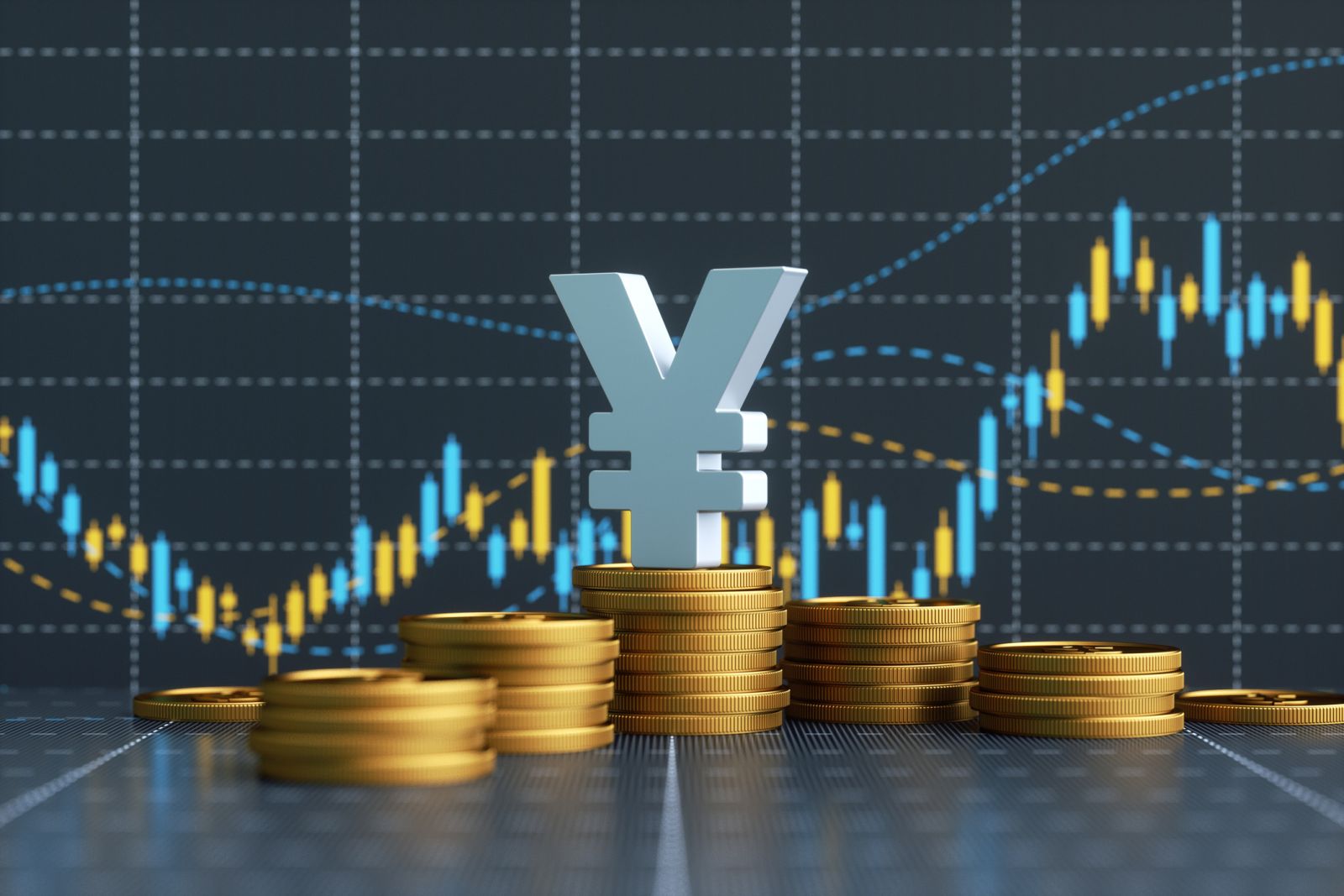
Recent concerns about the unwinding of yen carry trades and its potential impact on financial markets have proven less disruptive than anticipated. Despite other countries raising interest rates to combat post-pandemic inflation, Japan has kept borrowing costs low to address its long-term economic stagnation. Although the Bank of Japan (BoJ) recently raised its benchmark rate for the first time in 17 years, Japan remains a global outlier in its monetary policy approach.
A weaker yen has helped hedge funds borrow funds at low rates from Japan while reinvesting them in higher-yielding products in the US, leading to higher equity prices. Keep an eye on the S&P, Dow, Russel, and Nasdaq.
Could the weak yen continue soon?
Last week, all eyes were on Jackson Hole, Wyoming, as Fed Chairman Powell commented that it is about time for rate cuts. This resulted in the US dollar index trading and closing below 101.000. The US dollar had already been trending lower since May 2024, anticipating that the Fed would begin interest rate cuts sooner rather than later.

Source: Moore Research Center, Inc. (MRCI)
Interestingly, the US dollar index during the past 15 years puts in a seasonal peak in May (left arrow) and declines to the latter part of August (right arrow.) Could this August seasonal low in the US dollar support a weaker yen soon?

Source: CMEGroup Exchange
As the US dollar declined, speculation of a more aggressive Fed policy to cut rates became headline news. The upcoming September Federal Open Market Committee (FOMC) had investors betting on a 50-basis-point cut and another 50-basis-point cut before year-end. Recent economic data has thrown some cold water on that bet, and now the perception is a 25-basis-point cut at the upcoming meeting.
Some investors use the Fed Watch tool to estimate where rates will be several meetings away. Unfortunately, the tool is only reliable for upcoming meetings and maybe the next one. The Fed Watch tool uses the Fed Funds futures contract to reach these estimates, and the further months of these contracts are very illiquid, resulting in less reliable forecasts.
The following table reflects the open interest (number of outstanding open contracts) for each Fed Funds futures contract month. Notice how quickly the open interest and trading volume drop to low quantities compared to other financial instruments.

Source: CMEGroup
The Fed feels that inflation is slowing down, but investors know that inflation is still not close to the Fed's 2% target. Lowering rates too aggressively could quickly reignite inflation as more expendable income would come into the economy. 2024 is an election year, and inflation is being addressed as a significant voter concern.
Seasonal Pattern

Source: MRCI
MRCI editor Jerry Toepke states, "For the last 15 years or so, the yen has tended to make its seasonal peak in late August." After peaking in late August, the 15-year average (blue line) shows a significant downside price move.
Further research by MRCI has found a seasonal (yellow) window with a well-balanced risk to reward. The balance is to help find seasonal windows with minimal drawdowns while in the trade. Yet, they still have an opportunity for a decent return.
This year's optimal window reveals that yen (futures contract prices) have closed lower on approximately September 17 than on August 23 for 13 of the past 15 years. Traders can trade during the seasonal window or consider the 15-year downtrend of prices and stay with the position for as long as their strategy allows.
It's important to note that while seasonal patterns can provide valuable insights, they should not be the sole basis for trading decisions. Traders must consider other technical and fundamental indicators, risk management strategies, and market conditions to make well-informed and balanced trading choices.

Source: Barchart.com
For illustration purposes, we will use the Japanese yen futures contract traded on the CMEGroup exchange. Traders of the spot forex markets would invert the pattern. This means a seasonal sell in the futures contract would be a seasonal buy in the ^USDJPY market.
The chart highlights the price action after each year's seasonal pattern (red dashed lines) going back to 2011. Most of the years, there has been a downside price reaction during the seasonal window. The big question is, will this year be another one of them achievers?

Source: MRCI
Another feature of this seasonal pattern is that during the past 15 years, four of the years never had a daily closing drawdown (loss), as shown in the "Worst Equity Amount" column.
In closing…..
In conclusion, while recent concerns over yen carry trades and their market impact have been less disruptive than anticipated, Japan's unique monetary policy approach continues to set it apart globally. The yen's future remains uncertain with the Bank of Japan's recent rate hike and ongoing low borrowing costs. Meanwhile, recent US dollar trends and seasonal patterns suggest the potential for a weaker yen, especially as speculation mounts about the Federal Reserve's policy adjustments. Historical data indicates a tendency for the yen to decline following a peak in late August, and this year may follow a similar pattern. However, traders should cautiously approach seasonal patterns, integrating them with other technical and fundamental analyses to make informed decisions.
On the date of publication, Don Dawson did not have (either directly or indirectly) positions in any of the securities mentioned in this article. All information and data in this article is solely for informational purposes. For more information please view the Barchart Disclosure Policy here.






